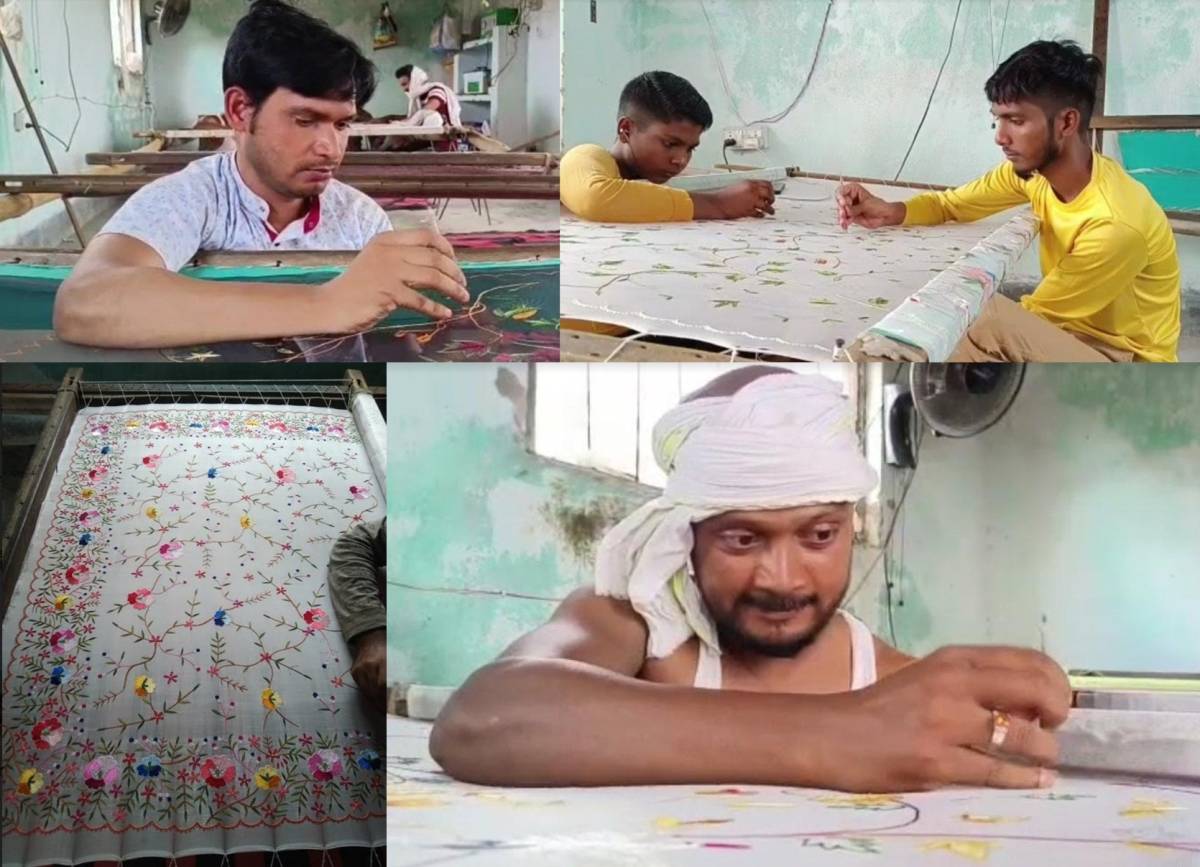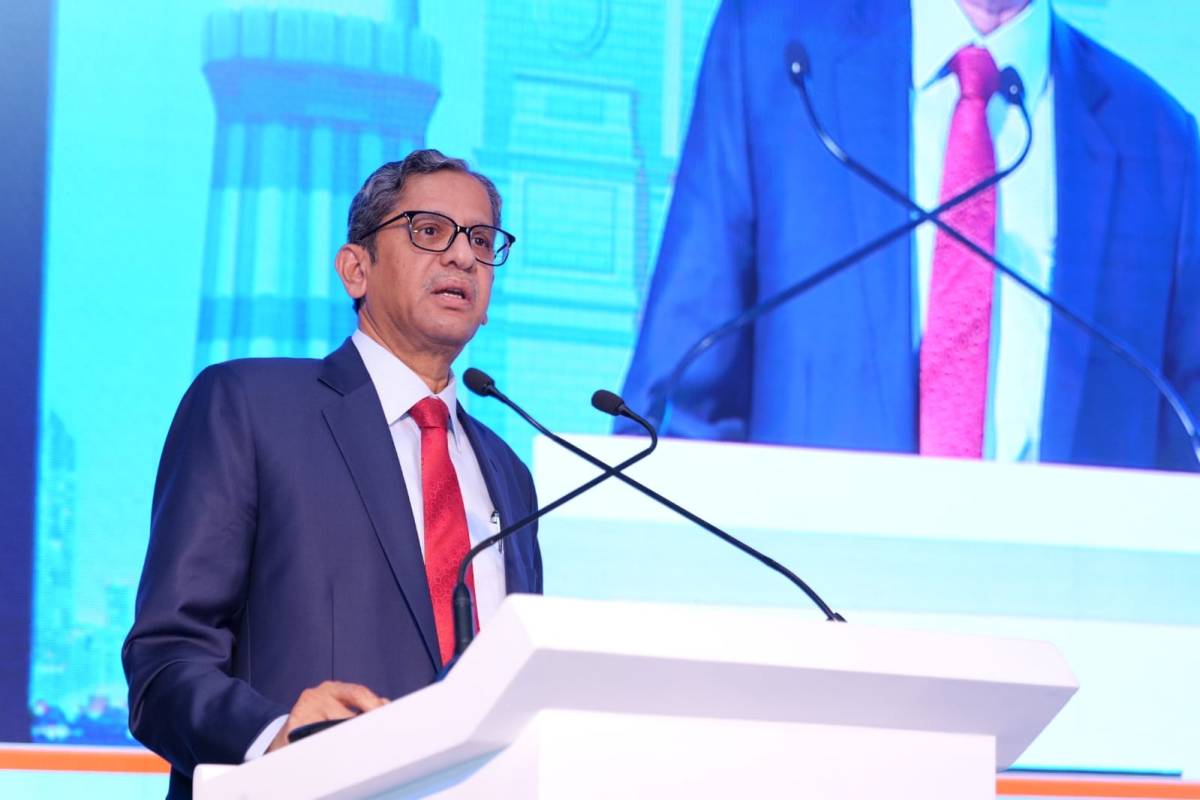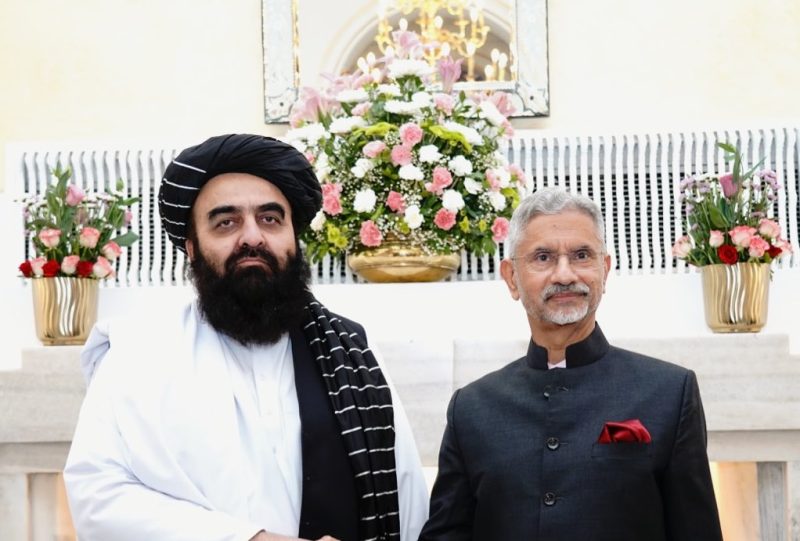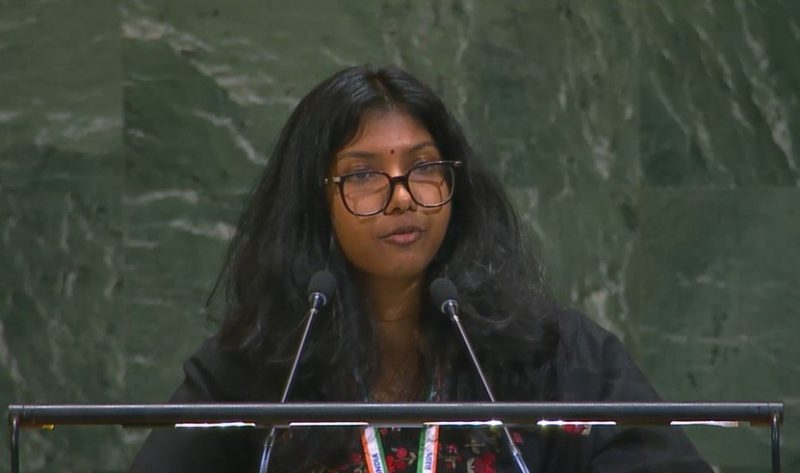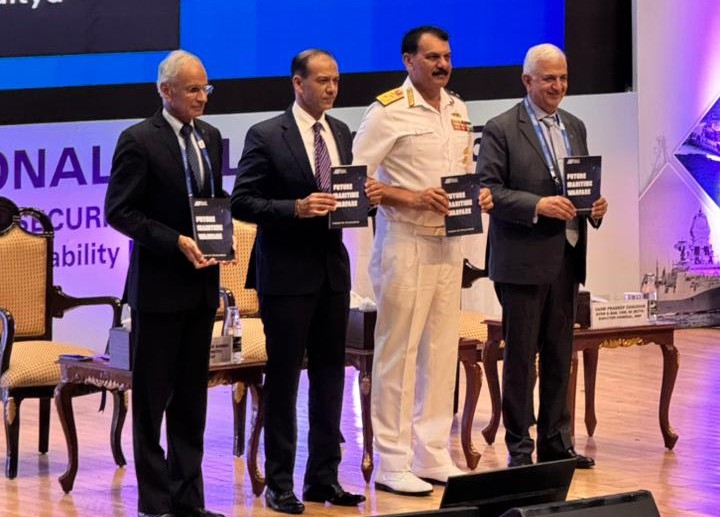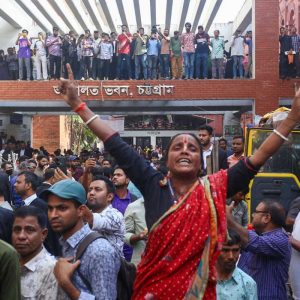Due to the difficulties being faced by them in cities, the four decided to carry out this work from their homes after returning to Fataha, and gradually their skills reached every youth in the village..writes Shambhu Nath Choudhary
The village of Fataha in the Naxal-affected Chatra district of Jharkhand is cited as an example when it comes to self-employment and self-reliance.
Four Fataha youths, Mohd Meraj, Hasmat, Khalid, and Nadeem, who used to do embroidery work in Delhi and Varanasi, imparted training to everyone in the village. And now, clothes embroidered in Fataha are reaching several metros of the country.
Due to the difficulties being faced by them in cities, the four decided to carry out this work from their homes after returning to Fataha, and gradually their skills reached every youth in the village, who earlier had no work except agriculture and labour.
Today, about three dozen people in the village are engaged in embroidery and are working every day from morning till evening to fulfill the orders received from the metro cities. Every artisan here is earning Rs 18,000 to Rs 25,000 a month by staying in the village.
Most importantly, the village has taken this path of self-reliance without any government help. This work is going on in the village for the last one and a half decades, but till date, no artisan has taken any help or loan from any bank or financial institution.
Mohd Meraj is the oldest artisan here. He had gone to Delhi in 1999 in search of work. There he learned embroidery work by staying with a shopkeeper in front of the Lady Shri Ram College. He soon realised that he would hardly manage his family expenses with the amount of money he was earning while staying in Delhi.
After about two years, he returned to Ranchi and started doing the same work at a shop. It was here that he realised that there is a good demand in the city market for women’s clothes with craft and embroidery work on it. He told a local businessman that he can supply more embroidered clothes by adding more people to this work in the village. The businessman liked the idea and then Meraj returned to his village and taught the embroidery skill to three or four relatives.
Apart from Meraj, Khalid, Hashmat, Nadeem also learned the embroidery work by staying outside.
Mohd Meraj said that 10 people work with him and the challenge is to complete the order on time. “For this we work for 10 to 12 hours.”
Another artisan Aamir says that he has a lot of work, but the space for the workshop is running out. He recently got an Indira Awaas Yojana approval. Once the house is built, more people will be hired.
According to Khalid, the village mainly does embroidery work on four types of fabrics – wet, organza, georgette and crepe. He first delivers the finished clothes to Ranchi. From there, it is sent to other cities of the country including Kolkata, Delhi, Varanasi and Mumbai.
It takes an artisan five to six days to do the embroidery work in a saree. In return, they get Rs 3,000 to Rs 4,000. Similarly, it takes two to two and a half days to prepare a dupatta, and in return they get Rs 1,500. Now these people themselves buy clothes from Delhi and other cities and embroider them and transport them to the market.
Suryakant Kamal, a local journalist from Chatra, says that Fataha is known for the unique craftsmanship on clothes in Chatra, Hazaribagh and nearby towns.
If government help and facilities are provided to the artisans here, then it can emerge out as an organized small scale industry, he adds.
Chatra is identified as a severely Naxal-affected area. If such efforts of self-reliance are further expanded with the help of the government, then the picture and fortune of the area can change, Kamal asserts.


